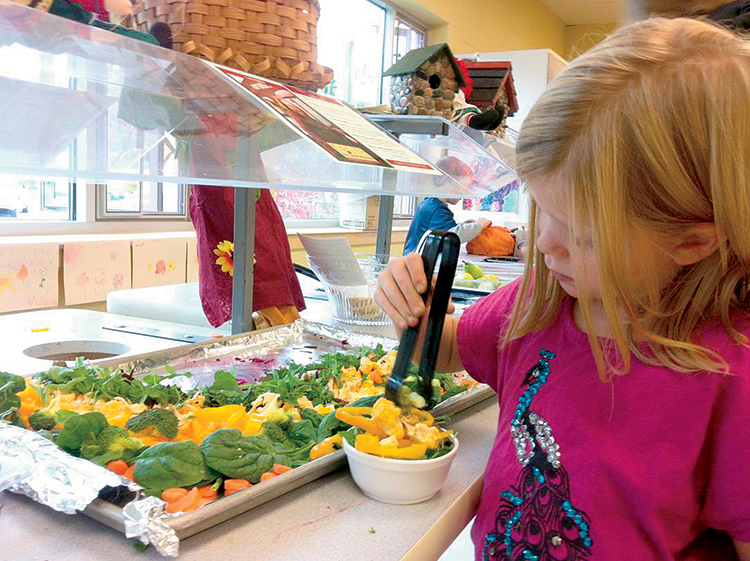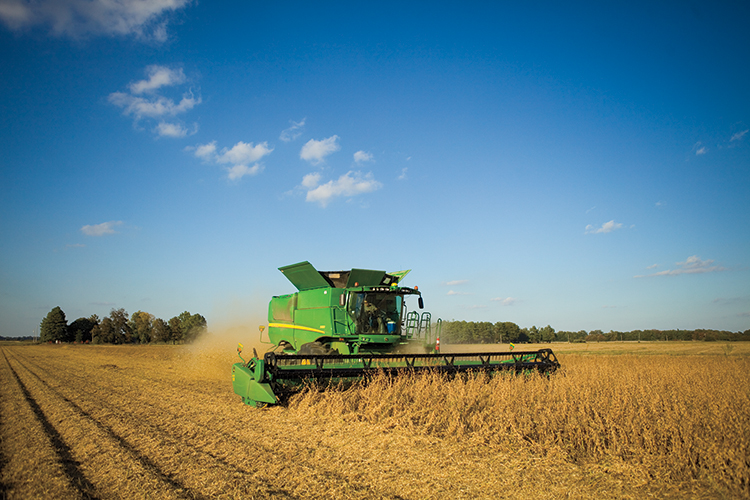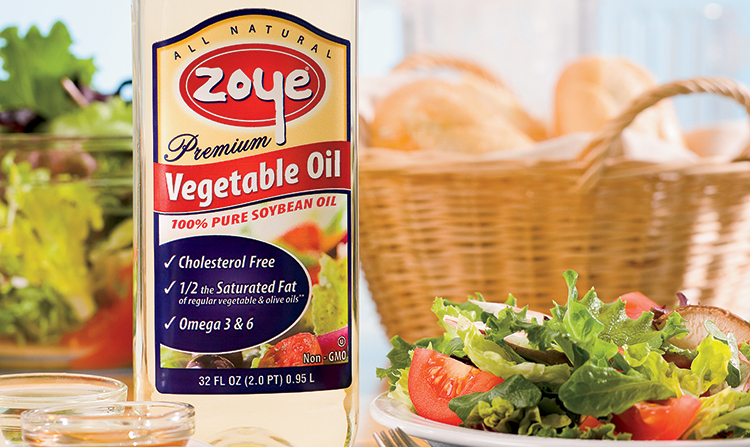Home > Michigan > Michigan Ag Education > Michigan’s Farm to School Connection
Michigan’s Farm to School Connection
In partnership with: Michigan Department of Agriculture & Rural Development

Walking into a Grand Rapids Public Schools’ cafeteria during lunch, Kendra Wills is quickly spotted by students who hold up their milk cartons and excitedly exclaim that they might be drinking Pizza’s milk.
“They all remember that Pizza the dairy cow is 15 years old and has had 20 babies,” says Wills, a community food systems educator for Michigan State University Extension.
The students learned about the cow during October’s Farm to School Month, which is part of the overarching farm to school effort in Michigan.
“Farm to school means everything – it means school gardens, it means buying local, it means educating kids about farms in their area, it runs the whole gamut,” Wills says.
Loyal and Local
At Heffron Farms in nearby Belding, Mich., fourth-generation farmer Denny Heffron sells his soybeans locally thanks to his 35-year business relationship with Zeeland Farm Services. Zeeland is the state’s sole soybean processor and refiner, turning about 12 percent of the state’s beans into several different products, including oil. The company produces a full line of oils sold under the brand name Zoye.
Family-owned and operated, Zeeland Farm Services’ biggest customers are schools and universities, according to Beth Westemeyer, director of business development. That means the soybeans grown on Heffron’s land may end up in the products enjoyed by students in Michigan cafeterias.
“We are the only certified low saturated fat content oil provider for the USDA nationwide,” Westemeyer says. “Our low saturated fat content oil is a healthier oil that not only has half the saturated fat of regular oil, but is also a non GMO – non genetically modified – oil.”

Making Connections
Pairing schools with local producers falls within Michigan State University Extension’s wheelhouse.
“We have traditional networks with farmers,” Wills says. “It’s where our bread-and-butter programs come from, so connecting institutions to farmers for local-purchase sourcing makes sense for us.”
Part of bringing those worlds together involves understanding the needs and expectations on both sides. Colleen Matts, state lead for the National Farm to School Network and coordinator of Michigan Farm to School, provides insight into these areas.
“Food service directors want to purchase local foods,” Matts says. “Their students and community members are talking about it, so they want to deliver that service. They will do what they can to stick with a farmer or vendor.”
Where farmers are concerned, she continues, “Schools can provide a guaranteed high volume sale, as opposed to a farmers market where you don’t know what you’re going to go home with. It’s not necessarily going to be a big money maker, but it could be beneficial because schools are very reliable customers.”

Closing the Loop
“I really think that most of the time, when we switch to a Michigan product, it tastes better to the kids,” Wills says. “If the kids don’t know it’s special, it’s not completing the full circle.”
In her role as a healthy eating coach, Wills talks with students about where their food comes from, why it’s interesting and how to recognize the different flavor profiles.
Students receive monthly email menus that include a list of locally sourced products along with other interesting statistics about the foods and Michigan agriculture.
Looking ahead, Michigan is uniquely positioned for a widely used and successful farm to school program.
“We have a really diverse agriculture industry,” Matts says, “which sets us up to provide fresh fruits and vegetables that kids like and that are affordable for schools.”



